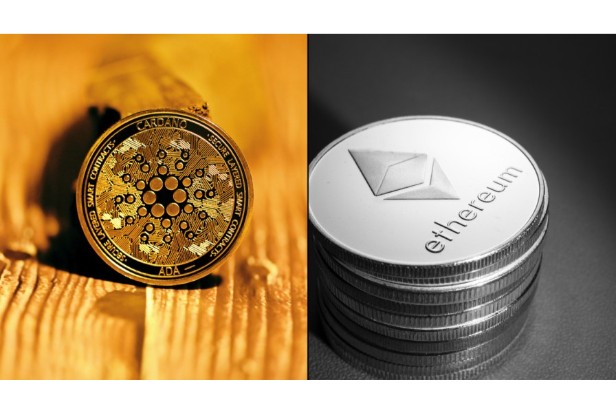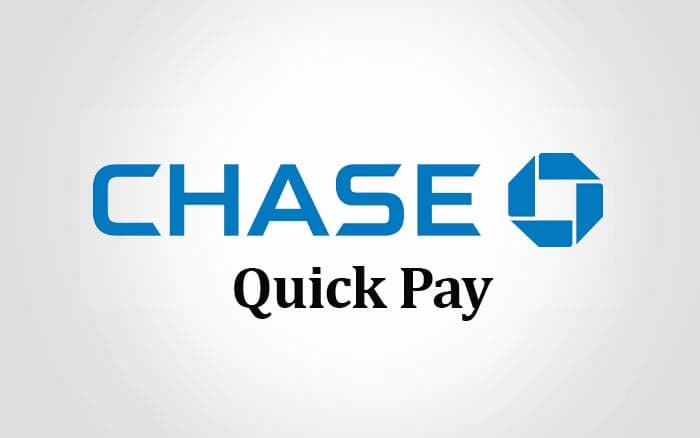
In this article, we’ll contrast Ethereum (ETH) and Cardano (ADA), two cryptocurrencies. In addition to discussing which one is a better purchase, we’ll demonstrate their similarities and key differences.
Industry giants Ethereum (ETH) and Cardano (ADA) are among the top 10 cryptocurrencies by market cap.
They are similar in both appearance and functionality, and Charles Hoskinson, who founded Cardano, was one of the original Ethereum developers. The two do, however, have a few minor variations. So, let’s see how these crypto-monsters stack up.
Table of Contents
Understanding Ethereum
A digital system called Ethereum was created in 2015. Solidity is the platform’s programming language, and Ether is its native cryptocurrency. It is simpler to mine blocks on Ethereum’s blockchain because it runs much faster than Bitcoin’s. Furthermore, it is not a restricted cryptocurrency. However, it uses a Proof-of-Work (PoW) system for block mining and transaction verification, much like the blockchain used by Bitcoin.

Similar to Bitcoin, Ethereum is a decentralized application platform that can also be used as a medium of exchange. Ethereum additionally serves as a distributed public ledger for verifying and storing transactions on a blockchain. Users of the network can create, share, purchase, and gain access to a wide range of applications using Ether, the native cryptocurrency of the network. dApps is the insider term for the network’s decentralized applications.
Users must first purchase some Ether tokens in order to access the platform’s apps and contracts. The ability to create smart contracts is one of Ethereum’s key differentiators and competitive advantages.
Read more: How to Stake Ethereum on Coinbase
Understanding Cardano
A blockchain platform called Cardano was introduced in 2017. ADA, a cryptocurrency that employs the Proof-of-Stake consensus algorithm Ouroboros, is the preferred cryptocurrency for this system. Any blockchain network depends on the algorithm used to create blocks and validate transactions.
In order to ensure that the least amount of energy is lost during block generation, the protocol that powers this blockchain was created. Cardano was created as a platform for the creation of decentralized applications (dApps), and it features smart contracts that can be independently verified.
Cardano Vs. Ethereum: Key Similarities
People can purchase transactional coins from Cardano and Ethereum as investments in the form of ADA for Cardano and ETH for Ethereum. Both are also “Layer 1” blockchain technologies that allow developers to build decentralized applications (dApps) on their blockchains and self-executing smart contracts.
The use of proof-of-stake consensus mechanisms for their blockchains by Ethereum and Cardano is another similarity. Under the proof-of-stake model, participants who wish to help verify transactions put up crypto on the blockchain as collateral—they are said to “stake” crypto.
The proof-of-stake consensus mechanism used by Bitcoin (BTC) is less harmful to the environment than staking. In a proof-of-work system, computers expend a lot of energy to solve difficult puzzles that validate and complete blockchain transactions.
You should be aware that Ethereum started out as a proof-of-work system and switched to a proof-of-stake model in September 2022.
Cardano Vs. Ethereum: Major Differences
Ethereum is More Established
The older, more established, and more expensive of the two cryptocurrencies is Ethereum. The leading alternative currency has also made progress in its development, particularly when it comes to smart contracts, which are transaction protocols that automatically carry out the terms of contracts or agreements.
“Key features are still being developed by Cardano’s developers, and new services like smart contracts have just been added. This feature was first introduced by Ethereum several years ago,”says MarketVector’s Martin Leinweber is the product strategist for digital assets.
Transaction Volumes
Cardano is less popular than Ethereum. Compared to Cardano’s daily transaction volume of under 100,000, ETH processes about 1 million transactions per day.
The popularity of Ethereum is accompanied by rising prices. Both cryptocurrencies have transaction fees, but ETH’s are regarded as higher.
If you only intend to purchase ETH as a long-term investment, this information is less significant. But if you’re planning to use cryptocurrency for DeFi, smart contracts, or other types of transactions, it’s something to think about.
Overall Supply
The total number of ADA coins will never surpass 45 billion. Setting a hard cap like this is common; for example, Bitcoin’s hard cap of 21 million coins is a well-known and adored feature.
On the other hand, there is no hard cap on the total supply of ETH for Ethereum. Beyond a hard cap, it employs various mechanisms to regulate supply The total amount of ETH issued per year is capped, and there is also a mechanism to take ETH out of circulation—to “burn” ETH paid in gas fees.
Scalability
Part of being a good “Layer 1” crypto is that the blockchain infrastructure enables scalability. The Cardano system is more scalable and capable of supporting more transactions than Ethereum.
The number of transactions on Ethereum is a problem. The network functions properly when there is calm. Ethereum can’t keep up, though, as a bull market takes off and millions of new investors pour money into cryptocurrencies.
Pros & Cons

Advantages of Cardano
- Strong backing. Cardano has the backing of academics and is developing its community on research to significantly improve underdeveloped regions of the world. Cardano is being developed with a lot of funding and is being overseen by a capable team. Cardano has a lot of credibility that most other coins lack because the system is open to peer review.
- Lower costs and energy usage. Compared to Ethereum or Bitcoin, Cardano has much lower transaction fees. A blockchain that uses little energy is also run by Cardano. Energy efficiency and lower costs were one of Cardano’s original focuses and specialties, although Ethereum has made improvements in this area.
- Better potential for scaling. Scalability is greater on the Cardano blockchain. Cardano makes sure that it can grow to any size and that transactions happen quickly by utilizing a computational layer and a settlement layer. Additionally, it enables adjustments without affecting payments or other transactions.
Disadvantages of Cardano
- Many competitors. Avalanche (AVAX), Cosmos (ATOM), Polkadot (DOT), Solana (SOL), and Tezos (XTZ) are just a few of the other third-generation cryptocurrencies that Cardano is up against in the market. Additionally, unlike Bitcoin and Ethereum, it doesn’t enjoy the same level of brand recognition as being one of the first cryptos.
- Unfinished product. Add one more drawback to the list. According to experts, Cardano still only has a small number of applications compared to other smart contract blockchains and has been falling behind Ethereum for some time.
- Less demand. Cardano isn’t as popular as it once was among investors and users. The lack of demand could cause this investment to lose more value and liquidity if the crypto winter persists, making it more difficult to sell and get your money back.
Advantages of Ethereum
- First mover advantage. The first blockchain network capable of supporting smart contracts was Ethereum. This improved both its reputation against later entrants like Cardano and its market share among altcoins.
- Large ecosystem. With an ecosystem that supports decentralized exchanges (DEXs), lending protocols, yield farming platforms, insurance protocols, yield aggregators, and NFT marketplaces, Ethereum is very well-liked among decentralized applications. “Ethereum has the most dApps of any cryptocurrency platform,” Leinweber says.
- High liquidity. Due to the high demand for Ethereum, it is simpler to sell as an investment without experiencing a significant price drop between the time you place your order to sell and when it completes.
Disadvantages of Ethereum
- Limited capacity. Ethereum still needs to improve its ability to handle a large volume of transactions. The creators of Ethereum are attempting to fix it, and a new update called sharding ought to be helpful. But the upgrade won’t be available until the following year.
- High transaction fees. The old world of finance and banking is a nightmare for anyone who wants to leave because transactions take a very long time and there are high fees. These problems are especially difficult for Ethereum because the second-largest cryptocurrency needs to find a solution for its need for increased scalability.
- No supply limit. Since Ethereum has no restriction on how many coins it can issue, this could put deflationary pressure on the currency’s value. While that might be advantageous for those who want to use it for transactions, it raises questions for long-term holders of coins who want to see their value increase.
Why is Cardano So Cheap Compared to Ethereum?
Cardano is less expensive than Ethereum despite having similar uses. Supply and demand are one factor.
Cardano may be less expensive, but that doesn’t necessarily mean it’s a better deal. Additionally, investing in cryptocurrencies carries a high level of risk. Make sure it’s money you can afford to lose if you decide to invest in Ethereum or Cardano. This is a good rule of thumb for all investors.
Key Notes for Cardano
Few things to keep in mind about Cardano:
- Ouroboros Consensus Protocol: The first of its kind to be proven to be entirely safe was Cardano’s Ouroboros protocol, developed in the organization’s early stages. Because of its early success, the ADA coin system quickly gained the trust of cryptocurrency users.
- Scholarly Academic Research: Cardano’s development has been influenced by rigorous academic research, in contrast to that of other cryptocurrencies. Cardano’s development phases are supported by a strong research-based framework that incorporates peer-reviewed concepts and evidence-based techniques. In the future, the blockchain and the ADA coin can be developed on a strong foundation provided by this.
- Current Price: As the market for decentralized applications grows, it is anticipated that the value of ETH and ADA will rise.
Key Notes for ETH
Few things to keep in mind about Ethereum:
- Longevity: Currently, Ethereum ranks as the third most valuable cryptocurrency. The network also offers smart contracts and other decentralized applications.
- Ethereum 2.0: The upcoming 2.0 version will address some problems with Ethereum’s PoW technology. This change should, in the long run, increase the value of Ethereum.
- Current Price: As the market for decentralized applications grows, it is expected that the value of ETH and ADA will rise.
Which Crypto is a Better Buy?
Whether Ethereum or Cardano is a better investment depends on your preferred methods of investing.
The safer of the two investments is generally thought to be ethereum. Because of its larger developer community and ecosystem, according to experts, Ethereum is more likely to last over the long term.
However, given its potential user base in frontier and emerging markets, Cardano might be the best long-term investment. It might take some time before you realize the network’s extensive utility, but the potential upside from the current price is greater.
Final Thoughts: Cardano Vs. Ethereum
As they develop and add new features to their current systems every day, Ethereum and Cardano both show that they are beneficial and profitable for their users. The primary distinction at this time is that the Proof-of-Stake Ouroboros consensus mechanism used by Cardano is more flexible than Ethereum’s Proof-of-Work blockchain.
FAQs
Can Cardano Replace Ethereum?
Even the most bullish of Cardano supporters acknowledge that Cardano will only potentially surpass Ethereum within six to 10 years, not earlier.
Does Cardano Have a Good Future?
One of the most active and busy digital assets in the cryptocurrency space over the past 12 months has been Cardano. Given this, it is sensible to state that ADA is a viable investment choice. Many experts predict Cardano to have a bright future in 2022.
Why is Ethereum Worth More Than Cardano?
It’s significantly larger and more widely used than Cardano, which gives it an advantage. Furthermore, Ethereum has a longer history than Cardano, which is still developing its foundation.
![Best Buy App Reviews In 2022 [Updated]](https://www.findmybank.com/wp-content/uploads/2022/09/Best-Buy-App-Reviews-In-2022-Updated.jpg)
